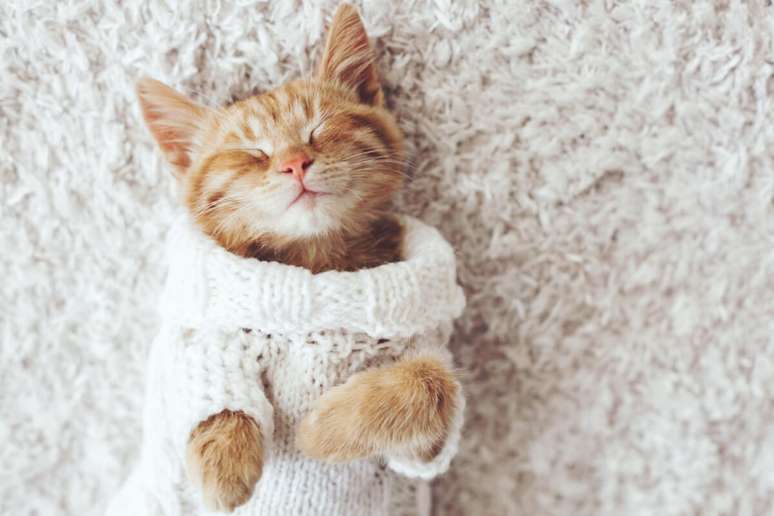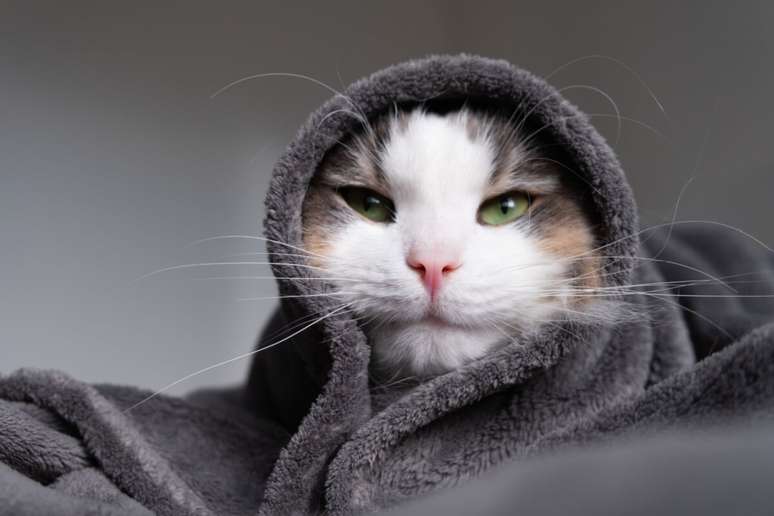It’s vital to make sure these adorable felines are comfortable and protected during the period of cold temperatures.
Like humans and other animals, cats also feel cold. While many have a naturally thick coat, they are still susceptible to discomfort caused by cold temperatures. Therefore, it is important to remember that such pets need adequate protection from excessive cold. Below, check out ways to keep your kitty safe!
1. Cozy internal environment
Provide a warm and cozy indoor environment for your cat. Make sure he has access to temperature-controlled areas away from cold drafts. Provide soft, comfortable bedding, preferably with blankets or pillows.
2. Cat clothes
In specific cases, such as elderly, sick or short-haired cats, clothing can be useful to keep them warm. There are special sweaters and covers available in the market. Make sure you choose options that are comfortable, fit properly, and don’t restrict your pet’s movements.
3. Proper nutrition
During colder times of the year, cats may need a little more calories to stay warm. Consult your vet to adjust the your pet’s diet as necessary. Make sure he always has fresh water available.

4. Mental stimulation and physical activity
Even if it’s cold outside, it’s important to make sure your cat gets adequate mental stimulation and physical activity. Play with him indoors, offer interactive toys, and provide scratching posts or other items that encourage exercise. This will help keep you active and healthy.
5. Hair care
Keep your cat’s coat well groomed during cold season. Brush it regularly to remove loose and tangled hair, stimulating blood circulation and maintaining a healthy coat.
6. Healthcare
Keep an eye out for any signs of discomfort or illness in your cat during cold weather. Sudden changes in behavior, lack of appetite, tremors or listlessness could be indicators that something is not right. Therefore, do not hesitate to contact your veterinarian for professional advice.
Source: Terra
Ben Stock is a lifestyle journalist and author at Gossipify. He writes about topics such as health, wellness, travel, food and home decor. He provides practical advice and inspiration to improve well-being, keeps readers up to date with latest lifestyle news and trends, known for his engaging writing style, in-depth analysis and unique perspectives.









